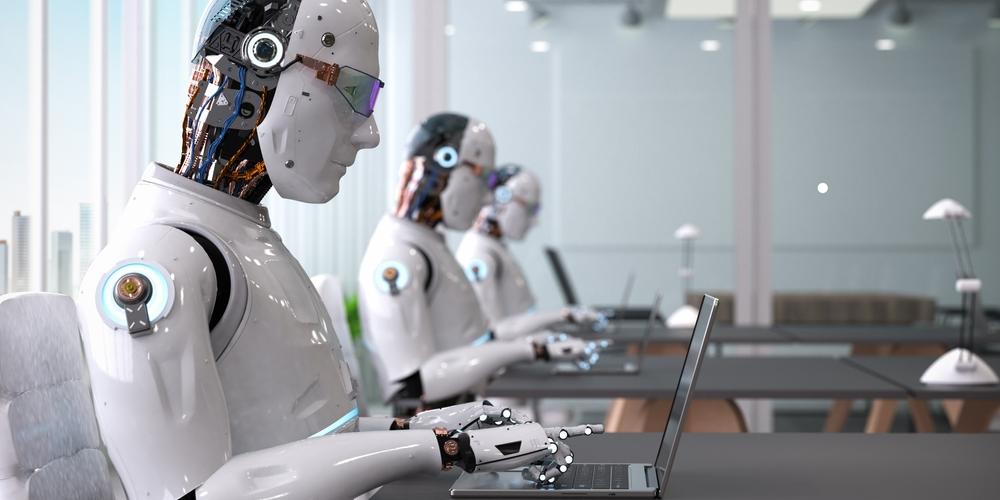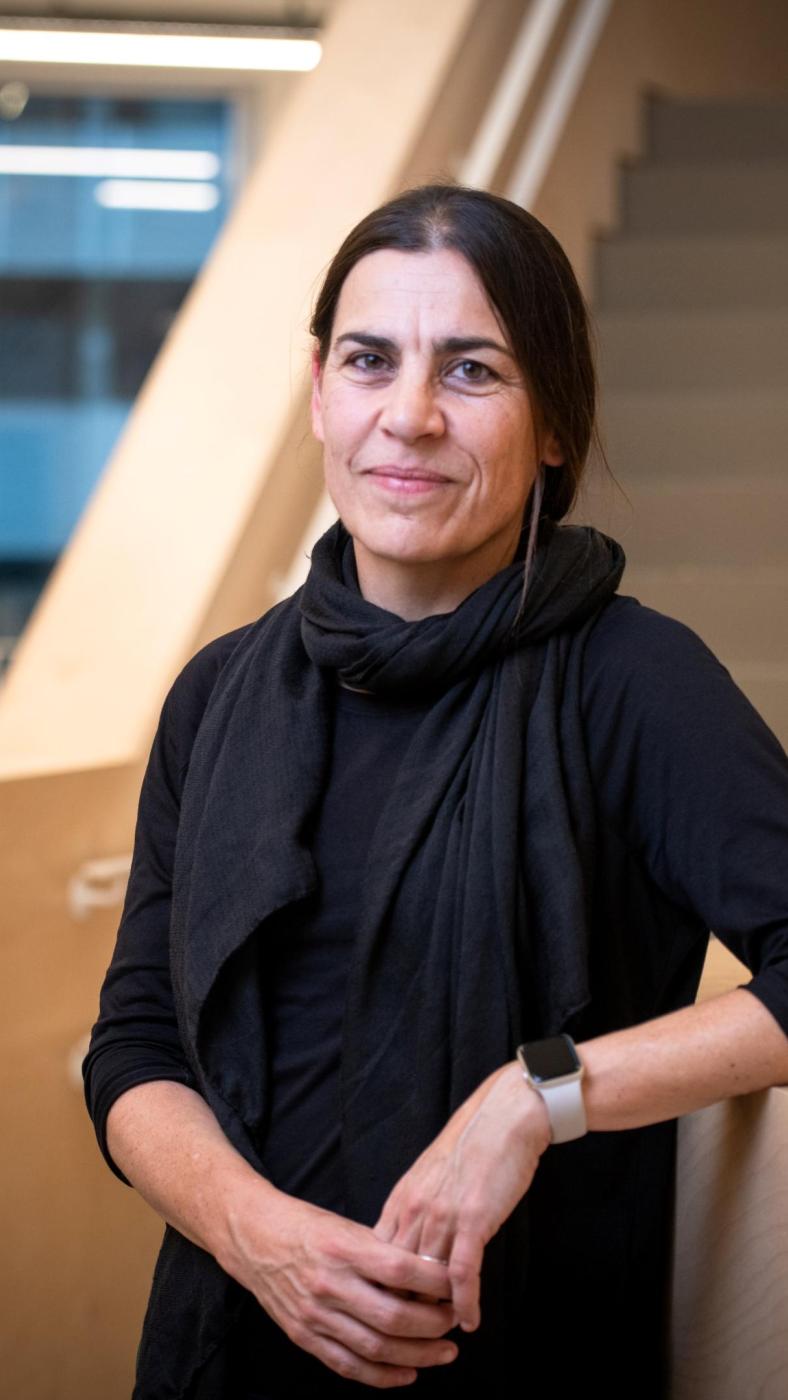
Our digital lives and work demand an enormous amount of electricity, with artificial intelligence (AI) as the latest major energy consumer. Processing the data that powers AI requires exceptional computing power, and supercomputers – like the new Flemish supercomputer soon to be housed by VUB at the Green Energy Park – provide the necessary capacity. We spoke with VUB's Chief Information Officer, Karin Voets, to ask: is there a way to make supercomputing less energy-intensive?
Are supercomputers really such energy hogs?
Karin Voets: *“Yes, that’s fair to say. Supercomputers are essential because we’re handling ever-increasing amounts of data. The high energy demand extends beyond electricity to water usage as well. High-performance GPUs (graphics processing units), which are crucial for AI tasks like language model processing, consume a significant amount of power and generate excessive heat. This heat buildup is so intense that air cooling alone isn’t sufficient anymore – liquid cooling is becoming increasingly necessary.
“When building computers and designing data centres, these needs are now considered. For instance, the VUB’s data centre will reuse the heat it generates to warm the buildings at the Green Energy Park in Zellik. Solar panels have also been installed on the data centre building to minimise its environmental impact. When creating a supercomputer, it’s best to design it to be as energy-efficient as possible, place it in an eco-friendly data centre, and ensure it is fully utilised. These are our team’s three key objectives.
“Yet, unrestricted growth isn’t sustainable long-term. The environmental reports of major IT companies are already reflecting the impact of AI. Google, for example, has seen its water consumption increase fivefold over a few years, from 1 billion to 5.6 billion litres. The energy use of data centres has also surged to the point that several cities, including Dublin and Amsterdam, have temporarily banned new data centres to protect local electricity supplies.”*
After cryptocurrencies, AI is now being blamed as a major power consumer – and thus a climate burden. Why is this?
“In Russia alone, cryptocurrency mining is estimated to account for 1.5% of electricity consumption, and authorities are even considering a mining ban if it places too much strain on the grid. AI also requires vast amounts of data to be stored and processed, first to train the model and then to perform tasks. An AI request, for instance, needs 25 times as much processing power as a Google search. There’s no point in downplaying it: we’re paying for our digital assistant in more ways than one. And we’re just getting started. But perhaps AI could give something back, for example, by improving climate modelling.”
What is an AI model?
An AI model is a program that learns from data to make predictions or decisions. ‘Training’ such a model involves feeding it numerous examples to teach it to recognise patterns, which requires immense computing power and thus energy.
Could AI eventually help reduce energy consumption or even offer solutions for climate change?
“Like any new technology, the key is to balance added value with overconsumption. Generative AI tools like ChatGPT certainly have their value, but in a business setting, their tangible benefits are sometimes hard to prove. Nevertheless, IT and AI can help with energy efficiency solutions, such as climate models, which heavily rely on AI. This creates a paradox: the same technology driving up our energy and water usage also holds the keys to solutions that could reduce consumption.”
What is lithium and why is it environmentally harmful?
Lithium is a key material in the batteries of electronic devices, such as e-bikes. Extracting lithium is water-intensive and can harm local ecosystems. Much of it is sourced from regions with limited mining regulations.

How can VUB staff help reduce greenhouse gas emissions?
“ChatGPT or Google? From an ecological standpoint, the choice is clear: for a simple query, use a search engine, which consumes far less energy than AI. The energy cost of a generative AI query is estimated to be around 20-25 times higher than that of a basic search engine query. I don’t have illusions: AI use will only increase, and there’s no going back. At VUB, however, I aim to ensure we only embed AI in processes and activities where the clear added value justifies the environmental cost.”
How can we maximise the lifespan of laptops and other hardware?
“At DICT, we take laptop lifespan seriously. We allow new laptop requests only after a set number of years, keeping them in use for up to seven years. If still serviceable, older laptops are given a second life through Out Of Use, a recycling organisation that reuses working components to create new laptops, saving on raw materials.”
Is cloud computing really energy-efficient?
“Cloud systems do offer scale efficiencies, including in energy usage. At VUB, we have our own cloud to meet our community’s storage and processing needs, ideally limiting the need for individual hardware purchases in research groups to specific cases. The most sustainable infrastructure is, of course, the one you don’t buy. Still, there will always be specific IT needs. At the ICT Directorate, we make a conscious choice to centralise IT infrastructure in the data centre, reducing the need for multiple points of security and cooling.”
Email: to attach or not to attach?
“Years ago, when storage was scarce and mailboxes were locally managed, we encouraged staff to avoid attachments and instead use central locations for documents, sharing links in emails. I consider this a great example of digital efficiency. We should encourage one another to share links rather than attachments – it reduces data traffic.”
More Tips
- Screens consume considerable power. Don’t leave them on unnecessarily, and consider if you really need a second monitor.
- Clear out files regularly – clutter has hidden costs in both the digital and physical worlds.
- Be precise in your search queries.
- Use generative AI tools for text and image creation thoughtfully.
- Take good care of your laptop and return your old one.
- Return any unused IT equipment to allow it to be repurposed or recycled.
Bio Karin Voets
Karin Voets has served as the CIO of VUB for a year, overseeing an ICT team of 85 who manage VUB’s digital infrastructure, including network, hardware, and software. Karin studied at KUL, earning a Master’s in Middle Eastern Studies from the American University in Cairo. Starting her career in speech technology, she helped develop early language models, the forerunners of today’s large language models, and contributed to creating the first Arabic text-to-speech system. With over 20 years of IT and management experience across both private and public sectors, Karin has long been committed to digital efficiency and the ecological impact of IT.